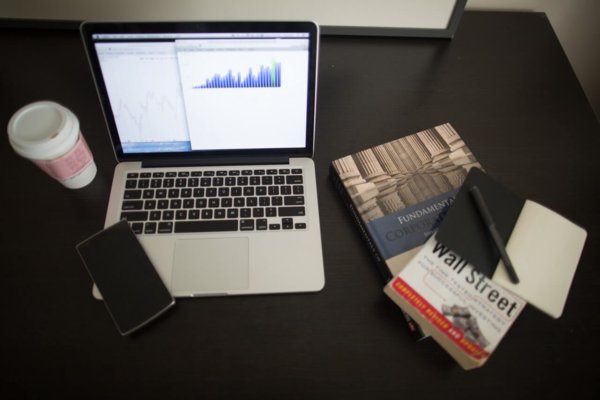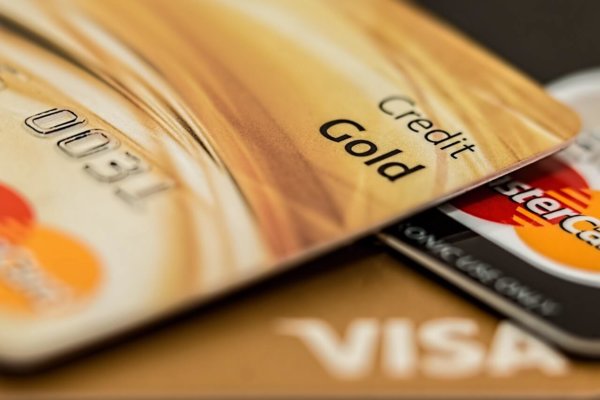What Is Bankruptcy? - The Full Guide
Bankruptcy is a legal procedure where a person or company declares they cannot pay their debts. The court then orders them to repay some or all of their creditors. If you declare bankruptcy, you will no longer owe any debt.
Bankruptcy is a serious matter. It can ruin your credit score and prevent you from buying a home or car loan for years. But while it is a serious issue that can have major consequences for people and businesses that have to file for it, there are a lot of things about bankruptcy that are unknown or misunderstood. That's why we've made this guide to help clear things up.
In this article, we'll take you through everything there is to know about bankruptcy, from what it actually is to what happens when someone files for bankruptcy. We'll also look at the different types of bankruptcy.
Also read: Build Business Credit

What Exactly Is Bankruptcy?
Bankruptcy is an order given by a judge in which a debtor (someone who owes money) has to stop paying their creditors. This means that if you're in debt, you may be able to get out of it without having to sell all your belongings and assets. It isn't a 'Get Out Of Jail Free Card', however, and filing for bankruptcy will have serious long-term financial consequences for your credit score and finances.
The process begins with a creditor filing a petition against you. A petition is basically a formal request asking a judge to grant a certain type of relief. In most cases, the petition asks the judge to make an order declaring that the debtor has committed fraud and should not receive the discharge of his/her debts. The court may also ask the debtor to provide additional information regarding his/her income and expenses.
Once the petition is filed, the court will set a hearing date. At this point, the judge will decide whether to grant the requested relief. If he does, the court will give him/her the authority to order the debtor to pay back the debt owed to the creditor.
If the debtor doesn't comply with the order, the creditor can apply to the court for enforcement. Enforcement is essentially the same as a lawsuit: the creditor must prove that the debtor failed to comply with the court's order. If the debtor fails to comply, the court can hold him/her in contempt of court. Contempt of court is a criminal offence punishable by jail time.
If the debtor complies with the order, the court will discharge the debt. Discharge is basically the opposite of bankruptcy. When the debtor pays off his/her debts, the court will cancel the order granting the relief. Once the order is cancelled, the debtor will no longer have to pay back the debt.
Also read: Build Credit Fast
What Happens When You File For Bankruptcy?
As mentioned earlier, there are some pretty significant consequences when you file for bankruptcy. While it can help someone in debt make a new start, filing for bankruptcy will have an impact on your credit as well as other aspects of your finances.
Bankruptcy stays on your credit report for anywhere between 7-10 years and can create some issues as a result. For instance, you are much less likely to get approval for credit cards, credit accounts, and loans.
Even if you are able to access these services, you'll likely find that your options are limited. A credit account typically has lower limits for how much you are able to spend, and any loans will have a steeper rate of interest with a lower sum available to borrow.
In addition to impacting your ability to access credit, filing for bankruptcy can affect your overall credit score. Your credit score is based on several factors, including payment history, amount of debt, length of credit history, and types of credit used. Filing for bankruptcy can negatively impact each of these categories.
For example, your payment history will reflect any unpaid balances from the past. Any payments made after filing for bankruptcy will not count towards your total balance. As such, it is important to keep up with all of your bills even if you're experiencing financial difficulties.
Also read:Raise Your Credit Score

Types Of Bankruptcy
Not every type of bankruptcy is the same, and there are several types of bankruptcy that are slightly different from each other. In this section, we'll break down the most common types of bankruptcy.
Also read: What a PPP Loan is
Chapter 7 Bankruptcy
This is the most common form of bankruptcy and is what most people tend to mean when they refer to bankruptcy. Chapter 7 bankruptcy involves individuals with fewer assets, which are then liquidated in order to pay off their debt. Not all assets are liquidated; medical bills and credit card debts, for example, are exempt, while assets such as stocks and heirlooms are liquidated.
This means that, while someone filing for Chapter 7 bankruptcy is essentially selling their belongings to pay their debts, the exempt assets are untouched. However, the bankruptcy will remain on their credit records for 10 years and they cannot file again for at least 8 years in addition to the loss of assets.
Chapter 11 Bankruptcy
Chapter 11 bankruptcy is more commonly used by businesses that are at risk of going under. This type of bankruptcy is intended to help a business to reorganize its finances in order to stay running with the minimum amount of loss, and to pay off its debts quickly to avoid increasing costs due to interest.
Chapter 11 bankruptcy typically has a greater focus on repayment plans and asset protection in order to keep the business running and help it build profits back up.
Chapter 13 Bankruptcy
This is similar to Chapter 7 bankruptcy, but is intended for people who earn more and have more assets. With Chapter 13 bankruptcy, an individual's income is divided into three separate amounts: one to repay unsecured creditors (such as credit card companies), another to repay secured creditors (like car dealerships) and the last portion to be paid out over 3 years to unsecured creditors.
The difference here is that the person filing for Chapter 13 bankruptcy must first make arrangements to pay off their secured debts before they can start paying off their unsecured debts. Individuals filing for Chapter 13 bankruptcy will pay off their debts over either 3- or 5-year intervals, and they won't lose their assets as long as their creditors are paid back.
Also read: How To Apply For a PPP Loan

Final Thoughts
Bankruptcy is a serious matter that can have long-term consequences for those filing for it, but that doesn't mean that you need to panic. There are precautions and steps that are in place for people and businesses that are filing for bankruptcy that mean you don't have to lose all of your money and assets just to pay off your debt.
Filing for bankruptcy reduces the legal stress involved with repaying your debts, and minimizes the amount of damage done to your credit. So while bankruptcy can be a worrying situation, with the right steps in place, you can reduce the risk to your assets and finances.
Your pay stubs can be used to help track your finances which will assist you in boosting your credit score.
 Our customer support is available 24/7:
Our customer support is available 24/7:

